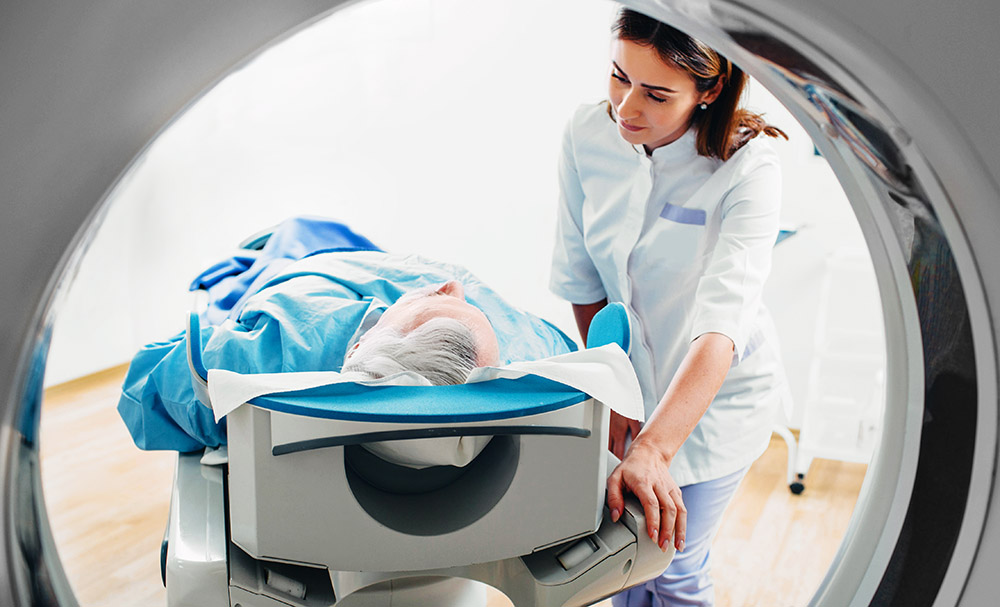Pancreatic Cancer Diagnosis

How is pancreatic cancer diagnosed?
If you have concerning symptoms which may be encountered in pancreatic cancer, your doctor will ask about your medical, personal and family history and perform a physical exam. A physical exam will include checking your body, skin, and eyes and pressing on your abdomen to check for any suspicious lumps and bumps. Pancreatic cancer is relatively rare, and its’ symptoms may mimic a number of more common and non-cancerous complaint.
Your doctor may also perform other tests to investigate your symptoms, which will determine or exclude whether you have pancreatic cancer. If a cancer is found these tests can help determine the type as there are a number of different types of pancreatic cancers, where in the pancreas the cancer has arisen, and if it has spread to other parts of your body. Sometimes, although rarely, a cancer from a different part of the body can spread to the pancreas.
Tests to diagnose pancreatic cancer may include:
- Blood, urine, and stool tests
- Imaging, such as an ultrasound, computed tomography (CT) scan, magnetic resonance imaging (MRI) and/or fluorodeoxyglucose (FDG)-positron emission tomography (PET)
- Endoscopic (camera) tests
- Tissue sampling, called a biopsy
For more detailed information about tests used to diagnose pancreatic cancer go here.
Questions to ask your doctor
If you can, take someone with you to your medical appointments. You may be given a lot of information and it can be helpful to have a supportive second pair of ears and someone writing down the information being exchanged.
If English is not your first language, you may find it helpful to bring a close friend or family member who speaks English fluently, even if an interpreter is available. An interpreter present or on the phone for appointments can always be arranged if organised prior to the meeting.
You may want to think about and write down questions before your appointment. Here are some helpful questions ask your doctor:
- What tests and scans will you use to investigate if I have pancreatic cancer?
- How much will it cost to have the tests I need?
- How many people with pancreatic cancer do you see each year?
- What type of pancreatic cancer do I have?
- Where in my pancreas did the cancer start?
- What kind of doctors will I need to see for my treatment?
- Has my cancer spread? Do I need more tests to check if it has spread?
- What is the stage of the cancer? What does that mean?
- Is my cancer potentially curative or is the goal to control it with palliative treatment(s)?
- If curative, what is the risk it will come back?
- What would happen if I decide not to have any treatment?
- What treatment options do I have and what are their side effects?
- What are the costs of treatment?
- Are there any clinical trials suitable for me?
- What do I do in between appointments if I am unwell or have a problem?
- Should I be doing exercise as part of my treatment? If so, how much do you recommend?
- Are there practical or emotional support services you recommend?
- Should I change my diet? Can I see someone to support this?
- Who else can help support my symptoms?
- If I would like a second opinion, can you recommend another specialist?
You can also use this question builder to help you plan questions for your appointment.
Always consult your doctor or health professional about any health-related matters. PanKind does not provide medical or personal advice and is intended for general informational purposes only. Read our full Terms of Use.
Thank you to the clinicians, researchers, patients, and carers who have helped us create and review our website information and support resources, we could not have done it without you.









